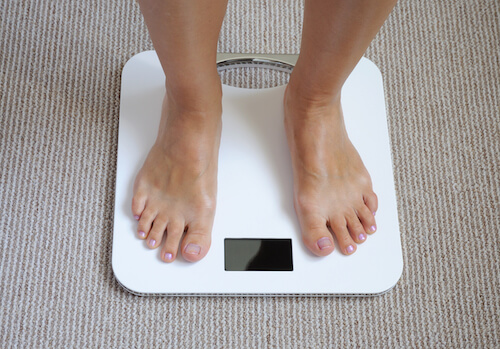Eating Disorders and Substance Addiction: The Importance of Simultaneous Treatment for Co-Occurring Disorders
Substance use disorders (SUDs) often go hand in hand with mental health disorders—such as depression, anxiety, post-traumatic stress disorder (PTSD), etc. There’s even a term for the simultaneous existence of these two conditions: co-occurring disorder.1 However, some people fail to realize that eating disorders such as anorexia nervosa, binge eating, etc. are mental health issues. And in fact, eating disorders are closely linked to SUDs, as studies suggests that up to half of those with an eating disorder also report having a substance use disorder.2
When it comes to co-occurring disorders of this sort, either condition can develop first, and one doesn’t automatically cause the other. Still, they’re frequently and logically linked. Those experiencing mental health challenges may turn to alcohol or drugs to self-medicate and seemingly sidestep mental health sympmtoms. Similarly, given the effects that substance misuse can have on a person’s thoughts, moods, behavior, and brain chemistry, substance misuse can lead to mental health issues.1
So let’s take a quick look at these intertwined conditions and why concurrent treatment is paramount.
Eating Disorders: Hiding in Plain Sight
Eating disorders (EDs) such as anorexia and bulimia are relatively easy to conceal, at least for a while. Those with an ED often skip social events involving food, secretly binge eat, repeatedly try the latest fad diets, or establish rigid rules about foods that are “good” vs. “bad.” In fact, it’s easy to make stringent food choices look like a preference or even a moral or ethical choice. For example, some people with eating disorders choose vegetarianism, veganism, or a gluten-free diet because they are lower calorie. If an alternative isn’t available, they just won’t eat—and abstaining is considered perfectly acceptable. 
Those with orthorexia, an obsession with eating healthy, are even praised and admired for their willpower and dedication to health. They may exercise excessively, earning further admiration for their commitment to fitness. Meanwhile, they may be secretly struggling with overwhelming exhaustion, hormonal issues, wild cravings, binges, and starvation that consume their thoughts and suck the enjoyment from everyday life.
So indeed, eating disorders are mental health issues. And just because they may not be as obvious as substance use disorders (in some cases), they’re important issues that need to be addresses alongside substance misuse.
Substance Misuse and Eating Disorders
Often, when the starvation and constant exercise don’t satisfy dysmorphic goals or quiet nagging thoughts, many individuals with an eating disorder turn to substance misuse. Along with alcohol and other sustances, which may seem to mask symptoms, some people misuse prescription ADHD medications, methamphetamines, and cocaine, which can suppress appetites.
This can be a deadly combination. Some EDs can lead to malnourishment, which can weaken the heart (among other effects). Add to that the ingestion of toxic substances that cause significant damage on their own, and this co-occurring disorder pairing can be a recipe for disaster.
Simultaneous Treatment is Essential
Because mental health issues and substance use disorders are so intertwined, experts recommend that EDs and SUDs are treated simultaneously.1 Often, however, those addressing their substance issues want to put off ED treatment or compartmentalize it, not realizing they’re setting themselves up for failure.
Recovery is possible, but one disorder cannot be ignored in service of recovery of the other. The solution is to address both disorders at the same time and to learn to separate the disease from the individual so that those suffering can begin to build healthy habits and enjoy productive, full lives.
Along these same lines, nutrition and consistent meals are essential for everyone. But for those with a substance use disorder, they’re even more important. A well-nourished brain is crucial to those in recovery to help them make good decisions, avoid impulsive behavior, and stay in a healthy routine to avoid relapse.
If you or a loved one is struggling with any form of co-occurring disorder, help and hope are available. American Addiction Centers provides all levels of care via evidence-based treatment programs in a variety of U.S. locations. AAC deals with myriad types of substance use disorders and effectively treats for co-occuring disorders.
Take the first step toward recovery today by speaking with an admissions navigator at or by verifying your insurance benefits online. Available 24/7 for a free and confidential conversation, AAC staff can discuss payment options and treatment particulars. It’s never too late to change, and the best day to start your recovery is always today.

